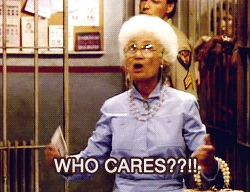Max Rockatansky
Max is probably the most straightforward of the characters as for sympathy. He's the title character, after all. Even if you haven't seen the previous movies, the monologue in the beginning establishes him as the loner who's just been attempting to survive for a while now. After his two failed escape attempts it's not hard to see why he wouldn't trust anyone. So even though he acts like a rabid animal for the first half of the film, you keep wanting to follow along if just to see how he gets out of his troubles.
Imperator Furiosa
Furiosa is established as a bad ass from the second she struts her way onto the screen. She commands her own war rig and the missing arm seems to be a testament of just how hard won it was. The trouble is, she's supposedly one of the tools of the villain of the story. But it's obvious from the very beginning that she isn't a true believer like the war boys she's hauling. She doesn't react to Immortan Joe's with the religious fervor of pretty much everyone else and seems more anxious to just have it over with. Later when the war rig is attacked for the first time, she proves that it's not an accident that she's in charge. And finally, she's caring for someone other than herself. Her manner may be gruff and fitting the horrors she's been through but she is taking care of someone who's weaker than her. Several someones.
War boy Nux
Nux, even more than Furiosa, is supposed to be a villain, or at the very least a minion of evil. From the beginning he's presented as someone who is deeply into the Immortan Joe religion. He's anxious to give his life in service of Immortan Joe's world domination. In other words he's the very epitome of a cultish suicide bomber. And yet... when he is presented as probably dying in the sandstorm, you kind of feel bad for him. You feel even worse when he's lying unconscious and Max attempts to free himself by blowing Nux's arm away. This is mostly because Nux is presented as an underdog from the very beginning. Before Furiosa leaves for her - shall we say - unsanctioned outing, Nux is more or less dead which is why he needs Max as a blood bag. "High octane crazy blood". Despite being nearly dead, he successfully fights off Slit to make sure he is the only one who drives his car on the Fury Road. Throughout the first chase scene he's almost like a puppy; so anxious and excited to please his master.How to do it
- Make them an underdog
This is a really popular one, mostly because it tends to work pretty easily. If they're good at what they do, have them face an overwhelming force, such as in Max's first flight. He gets swarmed by war boys who seem to have an unlimited supply of guzzoline, overwhelming numbers and explosive weaponry. No matter how good he is at what he does, there is absolutely no way he's getting out of that situation. That doesn't stop him from trying. It's the Indy rule all over again. In the beginning of Raiders of the Lost Ark Indiana Jones faces numerous obstacles to get the object of his desire which he loses in the end because he gets surrounded by overwhelming numbers.
- Make them really, really good at what they do
Think about Furiosa hanging out of her cab to shoot the pursuing scavengers. She barely has time to sight them before she needs to be back in her cab to drive the rig and still she manages to blow the pursuing buggy out of the road. She keeps her cool even when her second in command is trying to strangle her and manages to get out of the situation. Make your character competent. Make her face hardship and get through to the other side. Loss and injury are okay but they need to come out of it victorious.
- Make them a rebel
In the Western societies we seem to have a natural tendency to root for the people who fight the power, so to speak. Furiosa's eye roll at Immortan Joe's speech marks her as a rebel even before she takes the detour. It's the whole Cool Hand Luke thing. Here's this stranger who comes to town and starts stirring trouble and yet we like him instantly for it. It makes no logical sense since human societies thrive on stability and rebels make stability harder but there you are. Maybe it's our inner teenager reminding us what it was like to be young and stupid.
- Give them someone/something to care for
This is another of those easy ones. You give a character a kid or a dog, something or someone weaker than him to care for and to protect, instant sympathy. See for example Tom Cruise in War of the World. The guy's a douchy loser but even though we don't really care about him per se, we want him to get to his target in tact because of the kids he's trying to get to their mother. The Wives are considered grown-ups but they've led such a sheltered, captive life that despite being, at least technically, adults they're in a much weaker position than pretty much anyone else out in the desert. Therefore everyone and anyone who protects them is automatically more sympathetic than everyone else around.
So, homework! You knew this was coming, didn't you? Write a page or less (maximum 300 words) introducing a character for each of the sympathy-inducing writer tricks.








